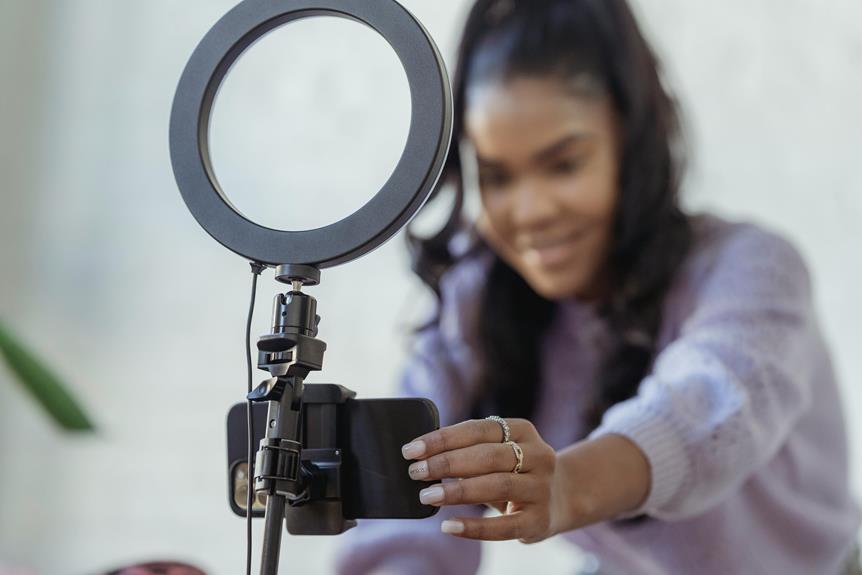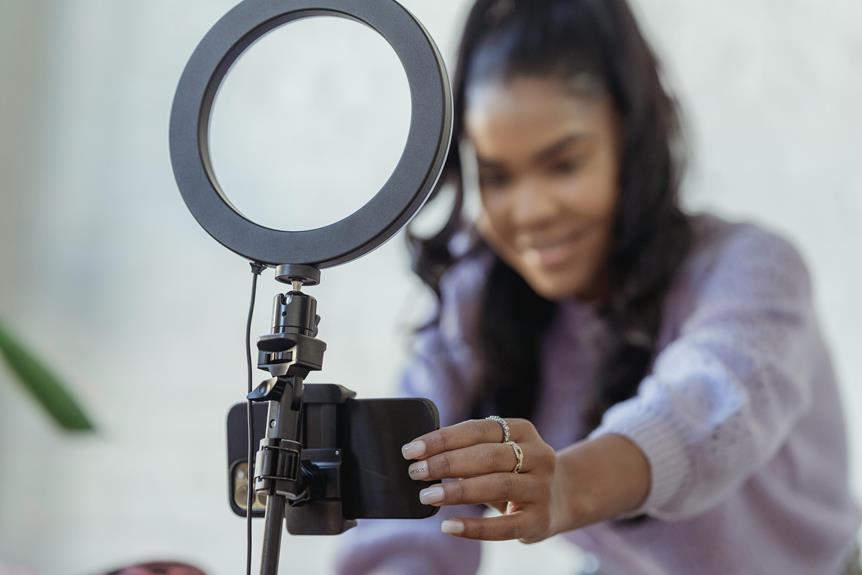Did you know over 2 million podcasts are out there? If you're looking to stand out, you've come to the right place.
This blueprint's designed to give you the inside scoop on crafting a hit show. You'll identify your purpose, target audience, and create engaging content.
We'll also cover technical aspects and promotion strategies.
Let's turn your podcast dreams into reality.
Key Takeaways
- Understanding the purpose and audience of your podcast is crucial for success
- Creating engaging content that is relatable and intriguing is important
- Paying attention to technical aspects such as sound quality and microphone selection can make or break a show's success
- Promoting the podcast effectively through social media strategies and building a community is essential
Understanding Your Podcast's Purpose
Determine your podcast's purpose to streamline your content and captivate your target audience. Purpose exploration isn't just a fancy term, it's a crucial step in your podcast's development. Start by asking yourself, what's the mission statement of your podcast? Are you aiming to educate, entertain, inspire, or simply share your thoughts?
Create a mission statement that aligns with your purpose. It's not just about what you want to say, but also about what your listeners want to hear. Your mission statement should be a reflection of your audience's needs and interests. Remember, you're not just creating a podcast, you're building a relationship with your audience. So, make sure your purpose resonates with them. It's a surefire way to create engaging, meaningful content.
Identifying Your Target Audience
To build a successful podcast, you need to have a clear understanding of who your target audience is. Audience segmentation is crucial in this process. Split your potential listeners into distinct groups based on shared characteristics and preferences.
- *Listener Preferences*: This involves identifying what your audience likes. Consider these aspects:
- Content: What topics do they find interesting?
- Format: Do they prefer interviews, stories, or educational content?
- *Audience Segmentation*: Divide your audience into segments. These segments can be based on:
- Demographics: Age, location, gender, profession, etc.
- Psychographics: Interests, attitudes, and behaviors.
Understanding your audience's preferences and segmenting them accordingly allows you to tailor your podcast content effectively, increasing the chances of building a loyal listener base.
Crafting Engaging Content
Once you've identified your audience, the next crucial step in crafting a successful podcast is creating engaging content that hooks your listeners from the first moment. Content brainstorming plays a key role here. Gather ideas, explore different angles, and choose topics that resonate with your audience.
Next, employ storytelling techniques to make your content more compelling. Narrate experiences, share anecdotes, and loop in lessons learned. This not only makes your content relatable but also adds an element of intrigue. Remember, your audience needs to find value in your podcast, so always prioritize their needs and interests.
Whether you're sharing insights or interviewing guests, ensure your content is original, informative, and captivating. This way, you'll retain your audience's attention and keep them coming back for more.
Perfecting Technical Aspects
You've got your content nailed down, now let's focus on the technical aspects of your podcast that can make or break your show's success.
Sound Quality and Microphone Selection are two pillars of a great podcast.
- Sound Quality
- Good sound quality is crucial. It can be the difference between a listener sticking around or hitting the stop button.
- Invest in a noise-cancelling software to filter out background noise.
- Microphone Selection
- Your microphone is your magic wand. Choose wisely.
- USB microphones are great for beginners, while XLR microphones are for more advanced podcasters.
Promoting Your Podcast Effectively
Now that you've nailed the technical aspects of your podcast, it's time to effectively promote your show and attract your ideal audience.
Start with social media strategies. Use platforms like Instagram, Twitter, or Facebook to share snippets, behind-the-scenes content, or engaging quotes from your episodes. This isn't just about posting; it's about interaction. Engage with your audience, respond to their comments, and build a community around your podcast.
Next, consider influencer collaborations. Identify figures who resonate with your podcast's theme and audience. Their endorsement can boost your visibility and credibility. Whether it's a guest appearance or a shout-out, leveraging their following can attract new listeners to your podcast.
Frequently Asked Questions
How Can I Monetize My Successful Podcast?
To monetize your successful podcast, you'll want to explore sponsorship opportunities. Companies pay to advertise on popular shows. Additionally, consider affiliate marketing, where you'd earn a commission for products sold through your recommendations.
What Are the Legal Considerations for Podcasting?
Navigating podcasting's legal landscape is like trekking through a dense jungle. You've got to consider privacy protection, ensuring you're not infringing anyone's rights. Also, watch out for libel risks, don't defame or falsely accuse anyone.
How Can I Manage My Podcast's Intellectual Property Rights?
To manage your podcast's intellectual property rights, you'll need to explore trademark protection. It's crucial to avoid copyright infringement. Consult a legal expert to help you navigate these complex areas effectively.
What Equipment Do I Need for Remote Podcast Interviews?
For remote podcast interviews, you'll need quality recording equipment. Good headphones, a clear microphone, and reliable internet are crucial. Mastering interview techniques and ensuring top-notch audio quality will make your podcast stand out.
How Can I Handle Negative Feedback or Criticism on My Podcast?
Handling negative feedback or criticism on your podcast requires effective feedback management. Don't take it personally. Use it to improve your content. Always respond professionally, acknowledging criticism while demonstrating your commitment to bettering your show.
Conclusion
In the symphony of podcasting, your purpose is the rhythm, your audience, the melody. Engaging content forms the harmonies, while technical aspects provide the precise timing.
Promotion is your grand finale. Together, they craft a hit show. So, tune your instruments, get ready to play, and let your podcast success resonate.
You've got the blueprint, now it's time to build. Remember, you're not just making a podcast, you're orchestrating a masterpiece.



